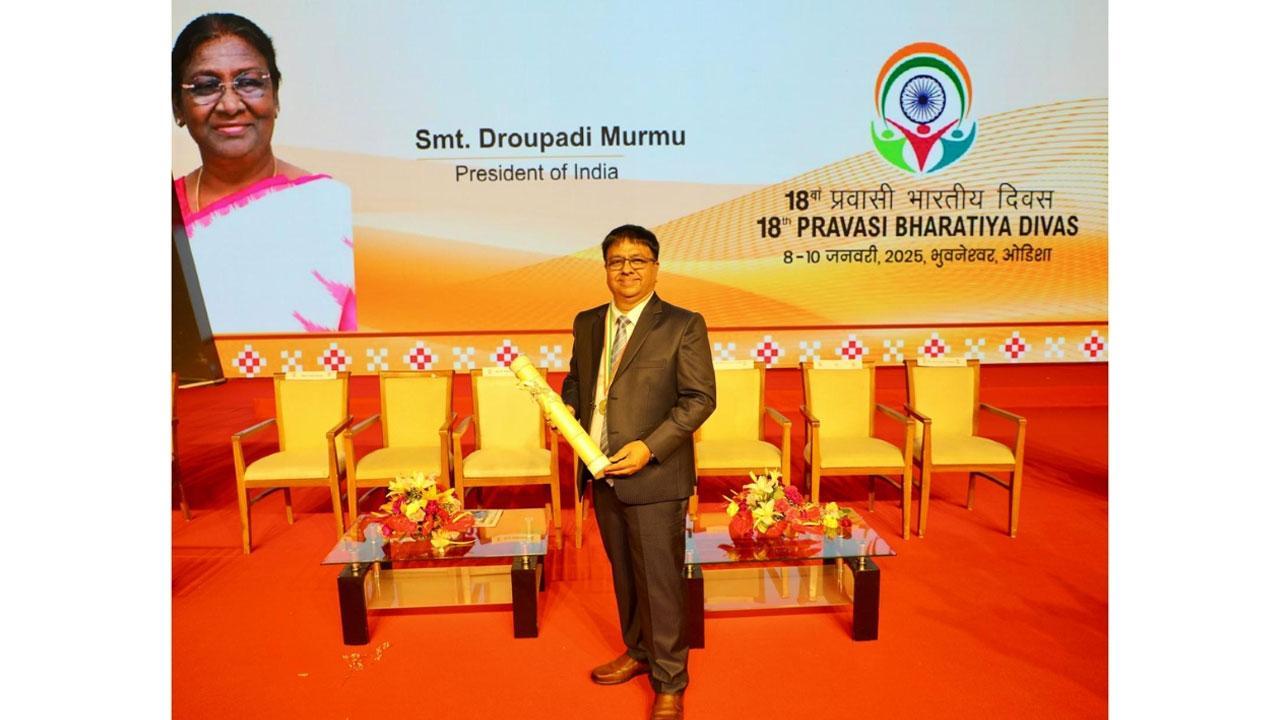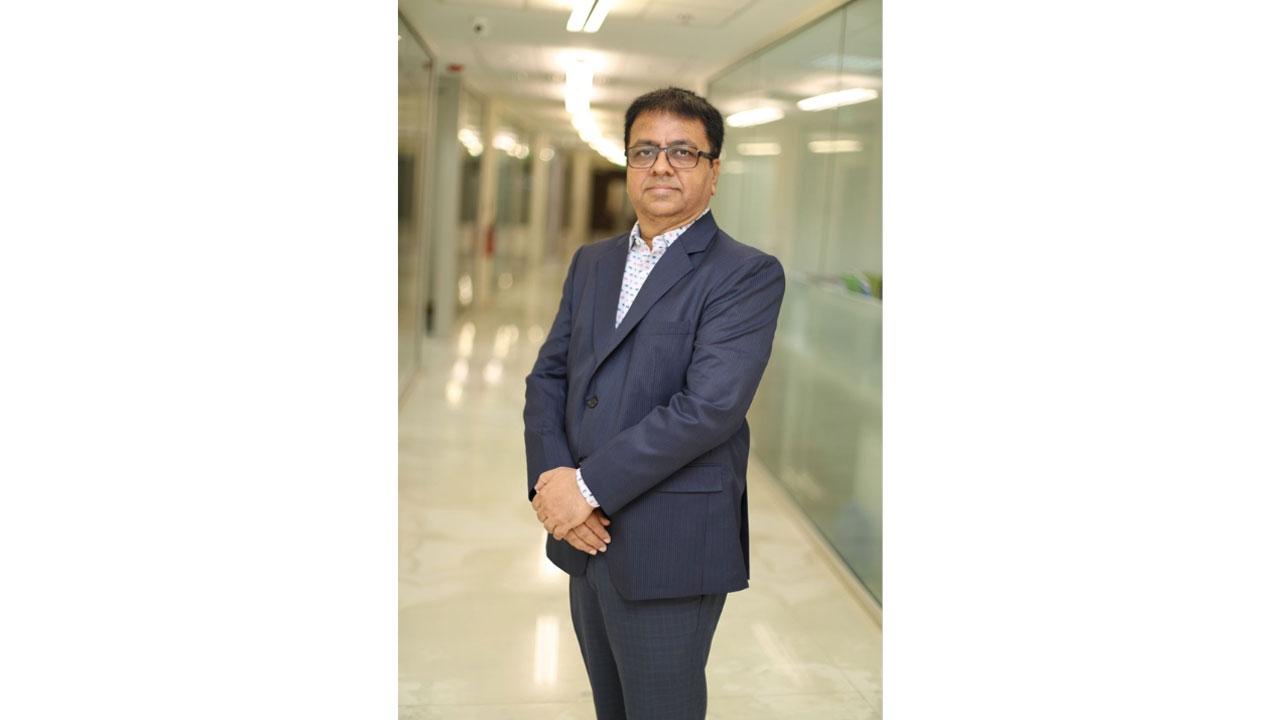India offers a rich heritage of educational excellence, while Singapore is a beacon of technological innovation and governance.

Mr. Atul Temurnikar, Co-Founder and Chairman of the Global Schools Foundation (GSF)
Mr. Atul Temurnikar, Co-Founder and Chairman of the Global Schools Foundation (GSF), has recently been honoured with the Pravasi Bharatiya Samman Award for his exceptional contributions to education. Through GSF, he has facilitated quality education for over 45,000 students across 11 countries, creating a platform for cultural exchange and strengthening India's global ties. In this interview, Mr. Temurnikar shares his insights on education, innovation, and diaspora engagement.
ADVERTISEMENT
1. Receiving the PBSA is a prestigious recognition for NRIs. How do you view this honor in the context of your contributions to education and the diaspora?
Receiving the Pravasi Bharatiya Samman Award is both an honor and a responsibility. It reflects the culmination of decades of work in creating education systems that not only provide academic excellence but also encourage cultural understanding and global citizenship. This recognition is a testament to our efforts at Global Schools Group,’ which is an initiative of the Global Schools Foundation. At GSG, we have built a network of schools across 11 countries that serve over 45,000 students. These efforts have strengthened cultural ties within the diaspora while showcasing India’s rich heritage globally. This award motivates us to expand our vision further and bring Indian education and values to more corners of the world.
2. You have a deep connection with both India and Singapore. How do you see these two countries complementing each other regarding educational reforms and technological advancements?
India and Singapore share a unique synergy. India offers a rich heritage of educational excellence, while Singapore is a beacon of technological innovation and governance. By combining India’s robust curriculum with Singapore’s advanced infrastructure and pedagogy, we can create a globally relevant education model. For example, integrating India's CBSE curriculum with technology-driven learning approaches from Singapore can set new benchmarks in education.

3. The Global Schools Foundation has been at the forefront of innovation in education. What key principles or strategies have contributed to its success globally, and how do you ensure that the quality remains consistent across different regions?
Our success lies in our unwavering focus on quality and community engagement. We ensure consistency through robust frameworks in pedagogy, teacher training, and technology integration. Each campus is adapted to local cultural contexts while maintaining the high standards we are known for. By leveraging technology like AI and machine learning, we personalize learning experiences, ensuring superior outcomes globally.
4. Holistic education is a core philosophy of GSF. How do you balance academic excellence with the development of leadership, creativity, and character among students?
Holistic education is central to our philosophy. Alongside academic achievements, we emphasize leadership, creativity, and character development through unique initiatives. For instance, our Global Student Exchange program allows students to collaborate with peers from different countries on projects like sustainable development. We also organize leadership camps, arts festivals, and community service programs such as tree-planting drives, fun raisers, and charity events. These activities nurture empathy, creativity, and leadership skills, ensuring our students are prepared to excel both academically and as global citizens.
5. Technology plays a pivotal role in modern education. How has your IT background influenced GSF’s approach to integrating technology in learning environments?
My IT background has been instrumental in shaping GSF’s tech-forward approach. We’ve introduced initiatives like the Global Digital Learning Ecosystem, where students access interactive online platforms, digital libraries, and AI-based tools for personalized learning. In our SMART Campuses, we use various technologies to track student performance and well-being. These innovations create a learning environment that is not only dynamic but also adaptive to individual needs. For example, during the pandemic, our campuses quickly transitioned to virtual classrooms, ensuring uninterrupted learning for thousands of students globally.
6. You have worked closely with both the Indian and Singaporean governments. Can you share any significant collaborations or initiatives that have had a lasting impact on education or diaspora engagement?
One impactful initiative was working with India’s Ministry of Education on the CBSE International curriculum, which aims to position Indian education on a global scale. In Singapore, our partnership with government agencies has fostered community-focused education, ensuring inclusivity and cultural harmony. Another impactful initiative was our work with embassies worldwide, organizing cultural programs like Diwali celebrations and yoga workshops for diaspora families. These collaborations strengthen ties between India and the diaspora, creating avenues for cultural exchange and community engagement.
7. With India emerging as a global power, what role do you envision for NRIs in areas such as education, innovation, and diplomacy? How can they contribute more effectively to India’s growth story?
NRIs play a crucial role as ambassadors of Indian values and innovation. They can contribute by developing educational collaborations, investing in research and development, and creating platforms for cultural exchange. By leveraging their global experiences, NRIs can support India’s vision of becoming a $10 trillion economy and a global education hub.
8. Given the success of Singapore’s bilingual education policy, how do you think a similar approach could benefit India, especially with the NEP 2020 promoting multilingualism?
Singapore’s bilingual policy is a model of preserving cultural heritage while ensuring global competence. India’s NEP 2020 aligns with this vision, promoting multilingualism to enhance cognitive skills and cultural understanding. Implementing this approach in India can strengthen linguistic diversity and create a generation that is both globally and locally connected.
9. Every journey has its share of challenges. Can you describe a critical challenge you faced in establishing GSF and how you overcame it?
One significant challenge was bridging the gap between affordability and quality in international education. Parents often perceived affordable schools as compromising on quality. To overcome this, we focused on creating high-value schools where quality education was non-negotiable. For instance, we introduced initiatives like the 9GEMS framework, which balances academics with extracurriculars, ensuring holistic development in early education. This model has been successfully implemented across our campuses, proving that affordability and excellence can coexist.
10. What advice would you give to young NRIs aspiring to make a meaningful impact in their host countries while maintaining strong ties with India?
My advice to young NRIs is to embrace dual roles in life. Leverage your global exposure to innovate while staying connected to your roots. Participate in initiatives that promote cross-cultural understanding, such as our Global Student Exchange and Model United Nations programmes, which we organise in collaboration with international bodies. By contributing to both your host country and India-whether through education, technology, or community service-you can create a legacy that bridges nations and inspires future generations.
Mr. Atul Temurnikar’s recognition of the Pravasi Bharatiya Samman Award underscores his remarkable contributions to education and global cultural exchange. His vision continues to inspire a new generation of leaders, creating opportunities for deeper connections between India and the world.
 Subscribe today by clicking the link and stay updated with the latest news!" Click here!
Subscribe today by clicking the link and stay updated with the latest news!" Click here!







